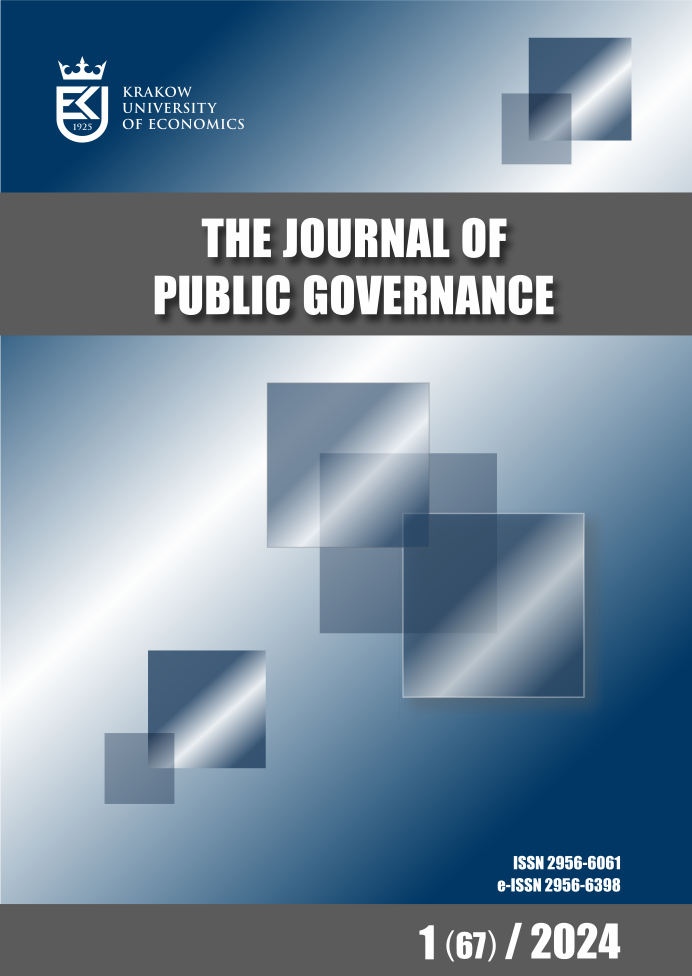The Promotion of the Zero-Waste Concept by Influencers in Social Media
DOI:
https://doi.org/10.15678/ZP.2020.52.2.06Keywords:
climate crisis, influencer marketing, Anthropocene, Zero Waste, circular economy, social media, consumer behaviourAbstract
Objectives: The aim of the conducted research was to examine the level of knowledge of the idea of zero waste as well as to correlate it with the use of social media and influencers’ followings.
Research Design & Methods: The research methods used in the study are as follows: descriptive research, Internet research, observation, and graphical presentation of data.
Findings: Those respondents who see that influencers promote the zero-waste concept have significantly higher index of the time spent in social media. Education level of the survey participants does not translate into the level of knowledge about the zero-waste concept.
Implications / Recommendations: The analysis shows that values of the promotion of the zero-waste concept are important in caring about the natural environment. Influencers can effectively promote the zero-waste concept via social media.
Contribution / Value Added: The author tries to show the purpose of the promotion of the said concept by using influencers in social media. The topic of environmental care is extremely important, especially in this day and age, when the climate crisis is progressing. Influencers who impact their customers can contribute to the spread of the zerowaste concept, which fits into an alternative economic model – namely circular economy – in place of a linear model.
Article classification: research article
JEL classification: M31, Q51, Q54
Downloads
References
Budzyński, T. M. (2020). Environmental Aspects in Polish Public Procurement System. In K. Daszyńska-Żygadło, A. Bem, B. Ryszawska, E. Jáki, & T. Hajdíková (Eds.), Finance and Sustainability (pp. 37–47). Springer.
Casaló, L. V., Flavián, C., & Ibáñez-Sánchez, S. (2018). Influencers on Instagram: Antecedents and consequences of opinion leadership. Journal of Business Research 117.
Cole, C., Osmani, M., Quddus, M., Wheatley, A., & Kay, K. (2014). Towards a zero waste strategy for an English local authority. Resources, Conservation and Recycling, 89, 64–75.
Curran, T., & Williams, I. D. (2012). A zero waste vision for industrial networks in Europe. Journal of Hazardous Materials, 207, 3–7.
Dhanesh, G. S., & Duthler, G. (2019). Relationship management through social media influencers: Effects of followers’ awareness of paid endorsement. Public Relations Review, 45(3).
MacArthur, E. (2013). Towards the circular economy. Journal of Industrial Ecology, 2, 23_44.
Geissdoerfer, M., Savaget, P., Bocken, N. M., & Hultink, E. J. (2017). The Circular Economy: A new sustainability paradigm? Journal of Cleaner Production, 143, 757–768.
Geng, Y., & Doberstein, B. (2008). Developing the circular economy in China: Challenges and opportunities for achieving ‘leapfrog development’. The International Journal of Sustainable Development & World Ecology, 15(3), 231–239.
Gronlund, J. (2015). Branding the ‘Circular Economy’ for Millennials. Biznology, August 12, 2015, https://biznology.com/2015/08/branding-circular-economymillennials/ (accessed: 23.07. 2017).
Johnson, B. (2013). Zero waste home: The ultimate guide to simplifying your life by reducing your waste. Simon & Schuster.
Kiss, C., & Bichler, M. (2008). Identification of influencers: Measuring influence in customer networks. Decision Support Systems, 46(1), 233–253.
Europejska, K. (2015). Closing the loop: An EU action plan for the Circular Economy. Komunikat Komisji do Parlamentu Europejskiego, Rady, Europejskiego Komitetu Ekonomiczno-Społecznego i Komitetu Regionów, COM, p. 614.
Korhonen, J. (2004). Industrial ecology in the strategic sustainable development model: Strategic applications of industrial ecology. Journal of Cleaner Production, 12(8–10), 809–823.
Korhonen, J., Honkasalo, A., & Seppälä, J. (2018). Circular economy: The concept and its limitations. Ecological Economics, 143, 37–46.
Kulczycka, J., & Głuc, K. (Eds.). (2017). W kierunku gospodarki o obiegu zamkniętym. Perspektywa przemysłu. Wydawnictwo IGSMiE PAN.
Lee, J., Pedersen, A. B., & Thomsen, M. (2014). The influence of resource strategies on childhood phthalate exposure: The role of REACH in a zero waste society. Environment International, 73, 312–322.
Lieder, M., & Rashid, A. (2016). Towards circular economy implementation: A comprehensive review in context of manufacturing industry. Journal of Cleaner Production, 115, 36–51.
Linder, M., & Williander, M. (2017). Circular business model innovation: Inherent uncertainties. Business Strategy and the Environment, 26(2), 182–196.
Markard, J., Raven, R., & Truffer, B. (2012). Sustainability transitions: An emerging field of research and its prospects. Research Policy, 41(6), 955–967.
Hannon, J., Zaman, A., Rittl, G., Rossi, R., Meireles, S., & Palandi, F. E. D. (2019). Moving Toward Zero Waste Cities: A Nexus for International Zero Waste Academic Collaboration (NIZAC). In W. L. Filho & U. Bardi (Eds.), Sustainability on University Campuses: Learning, Skills Building and Best Practices (pp. 379–414). Springer.
Nalewajek, M., & Mącik, R. (2013) The role of social media in building awareness of responsible consumption. Active Citizenship by Knowledge Managements & Innovation: Proceedings of the Management, Knowledge and Learning International Conference 2013.
Nowaczek, A., Kulczycka, J., Smol, M., Avdiushchenko, A., & Hausner, J. (2017). Badania postaw i poziomu świadomości w obszarze gospodarki o obiegu zamkniętym. In J. Kulczycka & K. Głuc (Eds.), W kierunku gospodarki o obiegu zamkniętym. Perspektywa przemysłu (pp. 19–27). Wydawnictwo IGSMiE PAN.
Săplăcan, Z., & Márton, B. (2019). Determinants of Adopting a Zero Waste Consumer Lifestyle. Regional and Business Studies, 11(2), 25–39.
Scheepens, A. E., Vogtländer, J. G., & Brezet, J. C. (2016). Two life cycle assessment (LCA) based methods to analyse and design complex (regional) circular economy systems. Case: Making water tourism more sustainable. Journal of Cleaner Production, 114, 257–268.
Stubb, C., & Colliander, J. (2019). ‘This is not sponsored content’: The effects of impartiality disclosure and e-commerce landing pages on consumer responses to social media influencer posts. Computers in Human Behavior, 98, 210–222.
Węgrowska, K. (2017). Życie Zero Waste. Żyj bez śmieci i żyj lepiej. Społeczny Instytut Wydawniczy Znak.
Li, Y. M., Lai, C. Y., & Chen, C. W. (2011). Discovering influencers for marketing in the blogosphere. Information Sciences, 181(23), 5143–5157.
Zaman, A. U., & Lehmann, S. (2013). The zero waste index: A performance measurement tool for waste management systems in a ‘zero waste city’. Journal of Cleaner Production, 50, 123–132.
Zaman, A. U., & Lehmann, S. (2011). Urban growth and waste management optimization towards ‘zero waste city’. City, Culture and Society, 2(4), 177–187.



